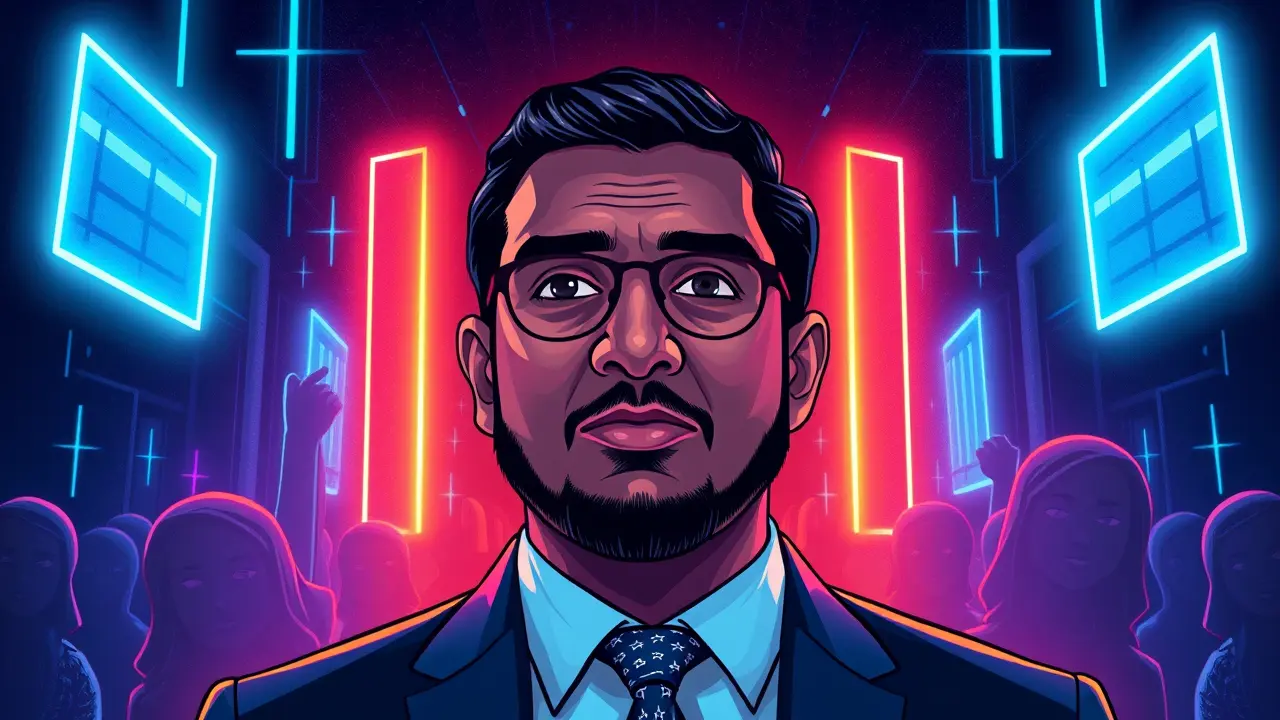
Politicsprotests & movements
Islamophobic Attacks on Zohran Mamdani's Mayoral Campaign.
AN
Anna Wright
10 hours ago7 min read
The Islamophobic vitriol targeting Zohran Mamdani’s mayoral campaign is not an isolated incident but a thread in the long, grim tapestry of political othering, a tactic as old as power itself yet freshly venomous in its modern execution. To understand the weight of these attacks, one must first recognize that they are not merely about Mamdani as an individual; they are about the systemic weaponization of religious identity to delegitimize progressive voices, particularly those who challenge entrenched establishments.Historically, this pattern echoes the McCarthy-era smears that painted dissent as un-American, or the more recent 'birther' conspiracy theories wielded against Barack Obama, where faith and origin were twisted into political cudgels. In Mamdani’s case, the subtext is stark: his policy platform, which advocates for defunding carceral systems and reinvesting in community-led social programs, is being deliberately obscured by a fog of bigotry, reducing a substantive debate about public safety and equity to a crude referendum on his Muslim identity.This is a calculated distraction, one that resonates in a post-9/11 America where Islamophobia has been structurally embedded into everything from immigration law to popular media, a phenomenon documented by scholars like Deepa Kumar and Khaled Beydoun, who argue that the 'Muslim terrorist' trope serves to justify both domestic surveillance and foreign intervention. The urgency of the present moment, however, lies in how these attacks are evolving; they are no longer confined to fringe forums but are amplified through sophisticated digital ecosystems where algorithmic outrage fuels real-world consequences, from vandalized campaign offices to violent threats that chill democratic participation.Consider the broader context: this is happening against a backdrop of rising white nationalist movements globally, from the xenophobic rhetoric of France's National Rally to the Hindu majoritarianism in India, where minority scapegoating is a proven electoral strategy. The parallel is chilling—when a candidate’s faith is framed as inherently incompatible with civic leadership, it not only poisons the political discourse but also normalizes discrimination for the average voter, making it permissible to question a person’s patriotism based on their prayer.For Mamdani, whose platform is deeply rooted in materialist critiques of racial capitalism, the Islamophobic onslaught functions as a reactionary counter-mobilization, an attempt to fracture the multi-ethnic coalitions he seeks to build by appealing to the basest fears of a predominantly white, secular liberal electorate. The consequences are dire: if successful, this strategy could set a precedent for future campaigns, signaling that bigotry is a viable path to power, thereby eroding the very foundations of pluralistic democracy.Yet, there is also a profound human cost, one that often goes unremarked in political analysis—the psychological toll on the candidate and their community, who are forced to navigate a dual burden of defending their policy proposals while also justifying their right to exist in the public square. This is where a feminist lens becomes indispensable; as Anna Wright might argue, the personal is inextricably political, and the attacks on Mamdani are a visceral reminder that leadership is still perceived through a prism of identity, where a Muslim man’s authority is constantly scrutinized in ways his Christian counterparts are not.The solution, therefore, cannot be merely condemnatory statements from party elites; it requires a structural reckoning with the media ecosystems that profit from outrage and the political machines that tacitly endorse these tactics for short-term gain. Ultimately, the Mamdani campaign is a microcosm of a larger struggle—one that pits an inclusive, redistributive vision of society against a politics of fear, and the outcome will reverberate far beyond a single election, shaping whether our democracies can mature beyond identity-based panic into genuine forums for substantive debate.
#Islamophobia
#Zohran Mamdani
#mayoral election
#discrimination
#featured
#political attacks
#Muslim American experience
Stay Informed. Act Smarter.
Get weekly highlights, major headlines, and expert insights — then put your knowledge to work in our live prediction markets.
© 2025 Outpoll Service LTD. All rights reserved.